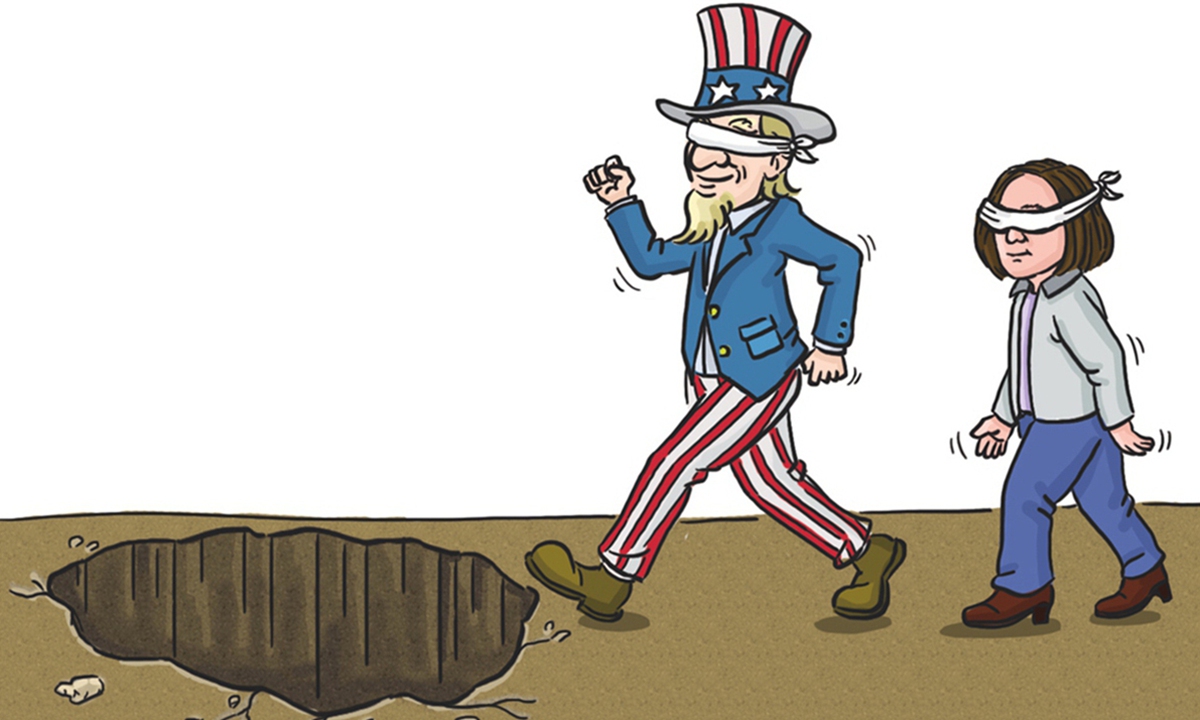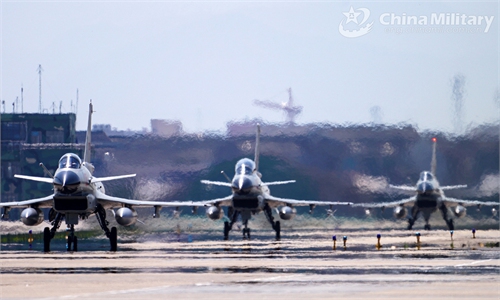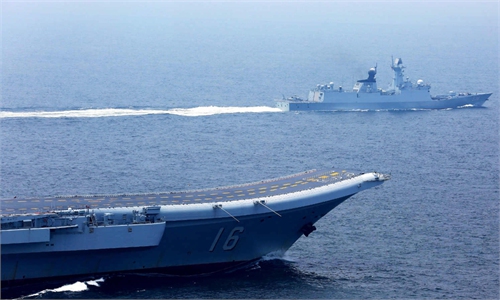
Illustration: Xia Qing/GT
On Tuesday, US Indo-Pacific Coordinator Kurt Campbell appeared to reject calls for a clear statement of the US' willingness to defend the island of Taiwan in the event of an "attack" from the Chinese mainland. Campbell argued that there are some "significant downsides" of the so-called strategic clarity during a discussion hosted by the Financial Times.
Recently, there have also been some discussions in US academic circles about whether the US should "abandon Taiwan." On April 28, Charles Glaser published an article on Foreign Affairs magazine, entitled, "Washington Is Avoiding the Tough Questions on Taiwan and China," arguing that Washington should "trim its East Asian commitments to reduce the odds of going to war with China."
The US basically has three approaches when it comes to the Taiwan question: strategic clarity, strategic ambiguity or abandoning Taiwan.
The US has long followed a policy of strategic ambiguity toward the island of Taiwan. It means that it is not yet known whether the US will intervene militarily to protect the island if Chinese mainland resorts to force for reunification. Although the confrontation between Beijing and Washington is now intensifying, the latter is still cautious about the possibility of a direct military conflict with the former on the Taiwan question.
This can be seen from the escalating confrontation between China and the US under the Trump administration. Back then, confrontations existed in almost all areas. But in the field of military, the confrontation was not as intense as in the economic field. Washington wants to use non-military means to pressure Beijing as much as possible. The consequences could be disastrous if a military conflict breaks out between the two major powers.
The US has a political commitment to the island of Taiwan. If the mainland uses force to reunify with the island, how exactly will the US respond to this? It is adopting a wait-and-see attitude until the time comes.
The so-called strategic clarity means, on the other hand, unconditional defense of the Taiwan island. Once the US adopts this approach, authorities on the island may take risks, even turn to desperate means, because they believe that they are protected by the US no matter what.
In that case, Washington will be embroiled in a military conflict with Beijing - a potential quagmire in a distant region where it has no direct interests. From this perspective, the US cannot give the island of Taiwan a clear commitment beforehand. It cannot let Taiwan's Democratic Progressive Party administration set a trap for it to fall into, because the US is not willing to be in a passive position and lose the initiative completely over the Taiwan question.
Discussions over abandoning the island of Taiwan mirror this reality: The US is uncertain about China's national strength, resolution and the prospects of future China-US interactions. Under these circumstances, Washington will try not to provoke Beijing too much.
The development of the situation across the Taiwan Straits will affect the strategic choice of the US. If the Taiwan authorities provoke the Chinese mainland and cross the red line, Washington might maintain its strategic ambiguity over the policy on the island. Another factor is China's stance. The US will try various methods to test China's determination in terms of reunification with the island of Taiwan. Once Washington believes that Beijing's resolution is unstoppable, it would find it unnecessary to invest military power over the issue.
US Secretary of State Antony Blinken said in an interview on Sunday that the US has a long-standing commitment to ensure Taiwan has the ability to defend itself. In other words, he meant that the US hopes to enhance Taiwan's ability to defend itself, rather than totally counting on the US for everything. It is believed the US would also warn Taiwan through certain channels not to deliberately stir up troubles and drag it into open conflict.
US recent statements over Taiwan have not changed substantially from the country's all-time attitude - maintaining the status quo across the Taiwan Straits. Yet Washington might feel that the current situation deviates a bit from previous circumstances - the Taiwan secessionist forces are more fervent than before, and the Chinese mainland's determination and pledges of reunification are more explicit. That's why Washington is trying to bring the situation back on the previous track by making certain statements.
The author is a research fellow at the Institute of American Studies at the Chinese Academy of Social Sciences. opinion@globaltimes.com.cn


